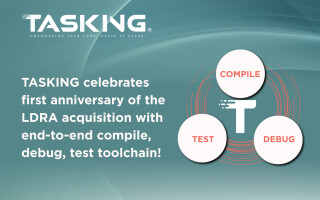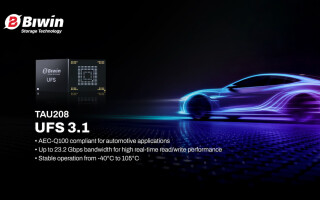Silicon Labs acquires Micrium in bid to provide complete IoT development solutions
October 04, 2016

Consolidation in the semiconductor industry continues, sort of. This time, it's not a semiconductor vendor acquiring another, but instead acquiring a...
Consolidation in the semiconductor industry continues, sort of. This time, it’s not a semiconductor vendor acquiring another, but instead acquiring a software vendor. In this case, it’s Silicon Labs acquiring real-time operating system (RTOS) vendor Micrium.
Announced yesterday, Silicon Labs, out of Austin, TX, has purchased Micrium, of Weston, FL for an undisclosed amount in a bid to deliver more complete, integrated solutions to its customers. Particularly for clients working on Internet of Things (IoT) designs, Silicon Labs is betting that Micrium’s µC/OS kernel, the networking stacks included as part of Micrium Spectrum, µC/Probe, and other embedded software products will pair with its multi-protocol wireless system on chips (SoCs), low-power microcontrollers (MCUs), and existing development tools such as Simplicity Studio to enable faster time to market and an easier on-ramp for developers of connected systems.
As part of the acquisition Micrium will operate as a separate business within Silicon Labs’ IoT unit and continue to serve new and existing customers, including those using more than 50 non-Silicon Labs processor architectures that Micrium supports. The Micrium brand, offerings, and website will remain unchanged, and employment offers have been extended to all current Micrium staff.
Behind the buy
During a phone briefing on Monday, Tom Pannell, Director of IoT Marketing for Silicon Labs, said that a key driver of the Micrium acquisition was his company’s pursuit of design wins in the multi-protocol wireless arena. According to Pannell, as the next generation of low-end embedded processing solutions adds more flash memory and increasingly complex peripherals, system designs that currently rely on separate network co-processors to handle the bulk of wireless communications will give way to multi-protocol wireless SoCs. An RTOS will be required in systems leveraging these multi-protocol SoCs to support, for example, switching between Bluetooth and Thread connectivity, or in instances where Bluetooth or ZigBee may need to run concurrently with a customer’s real-time application. The presence of an RTOS in these contexts will provide the determinism needed by protocol stacks, and also assist with application integration for medical devices, fitness trackers, and the like.
The expanded software footprint is also of great importance to Silicon Labs. As Pannell explained, “Silicon Labs is increasingly in the software business. When I talk to customers, 80% of the meeting is about the software we’re providing, about the stacks, etc.
“Selling software and solutions in the future is going to be really, really important,” he added.
The rub
As growth in the semiconductor has plateaued over the last several years there has been a concerted effort by chipmakers to provide more comprehensive solutions rather than just silicon, though many chipmakers have taken the homegrown route to adding this capability rather than acquisition. Adding Micrium will provide an immediate boost to the software proficiency housed at Silicon Labs, as well as knowledge of “how to transact that business, and having the expertise internally to help drive the roadmap,” especially since “just transacting software revenue for a hardware company is not natural,” Pannell said.
Among other things, there is history to consider. The past has shown that blending the culture and philosophy of a software company with the margins and often public pressures of a silicon vendor can fail, and fail hard. Running a software company is very different from running a hardware company. The differences, in some cases, are subtle, and in others are wide and overarching.
In many cases, a reason for past failure has been hesitation by silicon rivals to use competitive products, which begs the question: Why not just continue licensing Micrium products, or commission a large software development project in support of the Silicon Labs portfolio?
The answer is twofold. Silicon Labs believes that owning Micrium will enable tighter integration with their products for customers, making their offerings easier to access while also providing the opportunity for incremental advancements to tools like Simplicity Studio. On the other hand, Jean J. Labrosse, Founder, CEO, and President of Micrium pointed out that the solutions trend in industry makes the type of chip being used less critical, and if a Silicon Labs competitor “doesn’t want to give us advanced information about chips, we’ll use whatever is available in the public domain to help the end customer.”
Time will tell whether Silicon Labs will make the right moves going forward. However, bringing aboard the expertise that a Micrium can bring could make a big difference. We all know that software folks think differently. But unless they actually have a seat at the table, that difference is not always known or heard.




